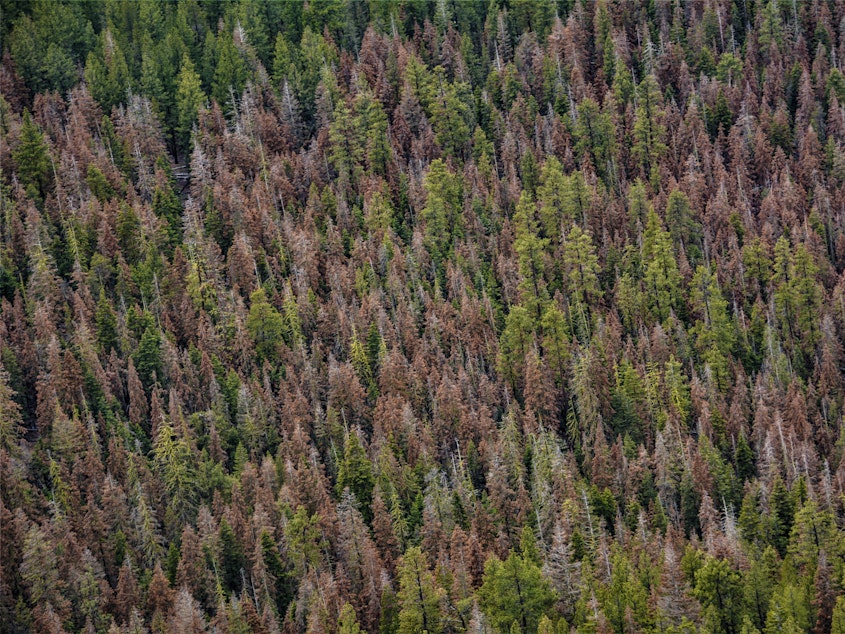Washington state has a new carbon credit market. What does that mean?

In the face of climate change, some state governments are turning to an old standby: market-based solutions to try to lower carbon emissions.
California, Oregon, and some Northeast states are selling vouchers for the right to pump carbon into the atmosphere and to slowly lower the number of those vouchers over time.
With the first carbon credit auction set to take place in Washington, how will the state balance industry with conservation?
Washington state began a soft-launch of its own “cap-and-invest” program in January. It springs from a law Gov. Inslee signed in 2021 — the Climate Commitment Act — which passed the Legislature after voters rejected a slightly different approach, a carbon tax, twice on statewide ballots.
One part of the plan allows for companies with high emissions to offset some of their carbon by investing in forests, to improve carbon storage there.
Owners of private forest lands and even local governments have started to get in on the action, selling the carbon capture potential of their trees. And now, the state would like to join the marketplace.
But there is one problem.
"We can sell timber, we can sell wheat, we can sell apples, we can sell grapes, we can sell shellfish and gooey ducks. We can even sell marijuana, but we cannot sell carbon," said Hilary Franz, commissioner of public lands with the Washington Department of Natural Resources (DNR).
Sponsored
Senate Bill 5688 and House Bill 1789 would allow the department to earn revenue from the sale of carbon credits.
Soundside spoke with Seattle Times environment reporter Isabella Breda about what the legislation means for the emerging carbon credit market.
Soundside also spoke with Seth Zuckerman, executive director of the Northwest Natural Resource Group, a nonprofit that promotes ecological forestry in Western Washington and Oregon, about the sequestration process and how the state might balance timber production with carbon-driven conservation.
You can read Isabella Breda's full reporting on carbon credits by clicking here.
Listen to the full segment by clicking the "play" button on the audio above.





